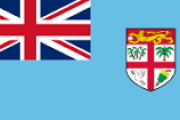President of the UN General Assembly,
Your Excellency Mr Volkan Bozkir;
Secretary General of the United Nations,
Excellency Antonio Guterres;
Heads of State,
Prime Ministers,
Ministers; Ladies and Gentlemen.
Bula Vinaka from Fiji.
We welcome this Summit as a long-awaited opportunity to break the hold of COVID-induced nationalism which has crippled our global response to this crisis.
It was with a sick sense of irony that in the year the United Nations marked its 75th Anniversary, countries hoarded critical health supplies and equipment, from life-saving drugs, to ventilators, to tests, to PPE, leaving many brave frontline health workers vulnerable. And while Leaders spoke glowingly about our collective faith in multilateralism, Governments allowed the price of desperatelyneeded exports like medicine and medical equipment to rise to levels that should be considered criminal, while others blocked these essential exports altogether.
We cannot continue to let those words, and that commitment to collective action, ring hollow. Here we are today. Together, we must renew our collective determination to defeat COVID-19, rebuild the global economy in a way that preserves the decades of progress the UN has worked so hard to achieve, and set humanity towards a safer and more sustainable future.
To do so, we must recognise that the playing field in a global COVID recovery is wildly uneven. Not all countries have the same level of technical and knowledge that is needed to defeat the virus. Not all can solve the problem of supply chain failures on their own. Not all countries have the financial capital to inject trillions of dollars into our devastated economies. Pacific Islanders –– and all Small Island Developing States –– are uniquely and intensely disadvantaged in all of these constraints. It is the smallest, most vulnerable States who need the UN the most to overcome them.
The gap between the international rhetoric on solidarity and action that we can feel on the ground is vast –– and as we look to recovery, it risks growing even further.
Despite all the optimism around a viable vaccine, access to that critical medical advancement is still not guaranteed for all people. Australia’s assurance to add Pacific Small Island States to its vaccine procurement program is an act of genuine solidarity. It is also a lesson to the world. The COVID vaccine must be a global good, freely available to all humanity and not only to the wealthy.
But a vaccine alone will not erase the damage done to the world’s most vulnerable economies. That will take financing.
It is suicidal for SIDS to continue to be shackled by the high cost of borrowing and suppressed by unfairly restricted access to concessional financing. This is why I’m calling for a significant expansion of concessional financing for small developing states. A mere one and a half percent of the total stimulus employed by developed nations is all we need.
If the institutions for economic governance and development, such as the World Bank and the International Monetary Fund, are not capable of providing the scale of concessional resources needed, then it is fair to ask whether they remain fit for purpose.
Every day we delay, that debate pushes the SDGs further out of reach for the developing world. For a true global recovery, we need radical reform: Now is the time to democratize the institutions of global governance to not only confront the COVID crisis, but the devastating impacts of the climate emergency.
The sacrifices this year has demanded from healthcare workers far and wide should make all of us consider how well we, as a community of nations, confront collective challenge. Whether it is our recovery from COVID, the campaign to achieve net-zero emissions, or the protection of our oceans, no nation can succeed alone. Let this crisis be our final lesson in the folly of unilateral action, and let us emerge from it not further divided, but more united, than ever before.
Vinaka vakalevu. Thank you.


